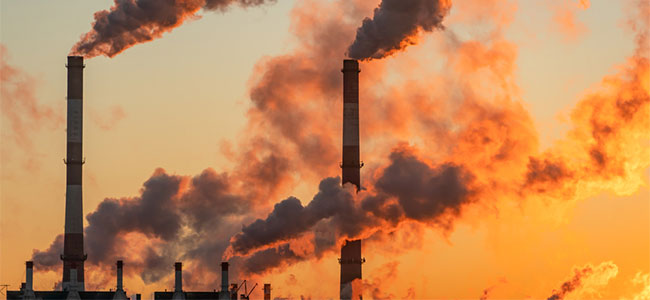
The Impact of Industrial Emissions on Air Pollution Level
Industrial emissions significantly impact air quality, contributing to health issues and environmental problems like acid rain and climate change.
- By Anoosheh Oskouian
- Aug 25, 2023
The manufacturing industry is a significant contributor to global air pollution, with industrial emissions releasing hazardous waste fumes that pose serious risks to both human health and the environment. These emissions can cause environmental degradation, generate strong odors and contribute to air pollution, which affects the well-being and safety of plant personnel and nearby neighbors.
Numerous industries, including oil and gas, chemical and petrochemical, biogas, pharmaceuticals, food and beverage, flexographic printing, packaging, and many others, are associated with the release of volatile organic compounds (VOCs).
The World Health Organization (WHO) identifies a list of classic air pollutants prevalent in industrialized countries, including nitrogen oxides (NOx), sulfur dioxide (SO2), carbon monoxide (CO), particulate matter (PM), volatile organic compounds (VOCs) and greenhouse gases (GHGs). These pollutants are released into the atmosphere primarily through the combustion of fossil fuels, industrial processes and the utilization of specific chemicals.
The emission of sulfur dioxide and nitrogen oxides can result in the creation of acid rain, which causes damage to ecosystems, soil, and bodies of water. Particulate Matter—which are fine particles referred to as PM 10 and PM 2.5—are linked to respiratory and cardiovascular diseases, as well as decreased visibility and regional haze. Additionally, industrial emissions contribute to global warming and climate change by releasing greenhouse gases like carbon dioxide (CO2) and methane (CH4) into the atmosphere.
Industrial air pollution has significant regional and global impacts, affecting both human health and the environment. Here are some of the key impacts of industrial air pollution:
- Respiratory and cardiovascular diseases
- Cancers
- Decreased lung function
- Increased frequency of asthma attacks
- Other respiratory illnesses
- Environmental degradation, such as acid rain
- Contribution to climate change
- Transboundary Pollution
Controlling industrial air pollution is crucial for protecting the environment and human health. Here are some strategies and measures that help control industrial air pollution:
- Utilize cleaner fuels. Promote the transition of industries to cleaner fuels, such as natural gas or renewable energy sources, rather than coal or oil, as these options generate fewer pollutants.
- Install pollution control devices. Manufacturers should install and maintain pollution control devices such as the Regenerative Thermal Oxidizer (RTO).
- Implement emission standards. Enforce strict emission standards and regulations for industrial pollutants. Set limits on how much pollutants industries can emit.
- Encourage waste reduction and recycling. Encourage industries to minimize the generation of waste and promote the recycling and reuse of materials.
- Implement green technologies. Foster the adoption of cleaner production technologies and processes. Promote the utilization of renewable energy sources and advanced manufacturing techniques by using heat generated from pollutants through the RTO.
- Encourage public participation. Involve the public in decision-making processes related to industrial pollution control. Encourage public awareness, education and participation programs.
- Support research and innovation. Invest in research and development of new technologies and practices that can further reduce industrial emissions.
Taking action to decrease industrial emissions and shift towards sustainable industrial practices is a crucial measure in the fight against air pollution, as well as in fostering a healthier future generation. It requires joint endeavors from governments, industries and individuals to mitigate the negative impacts of industrial emissions and establish a cleaner and healthier environment for everyone.
About the Author
Anoosheh Oskouian is the President and CEO of Ship & Shore Environmental Inc. Over 22 years since its formation, Ship & Shore Environmental is now one of the leading providers of clean air technologies and solutions, which clean our air and environment. As the only Iranian-American female CEO in the environmental industry, Anoosheh directs the corporate strategy and business development for engineering, innovation, product development, sales, and fabrication.